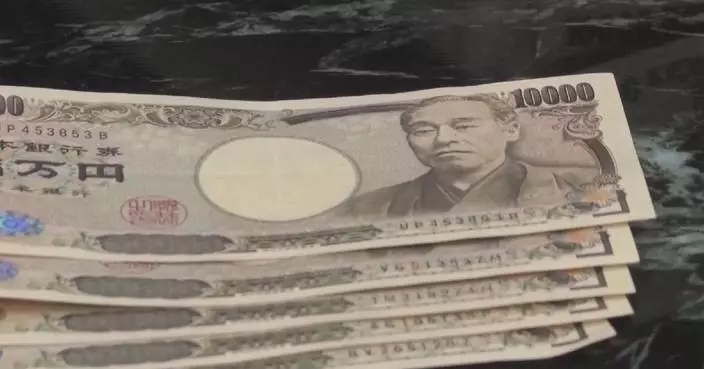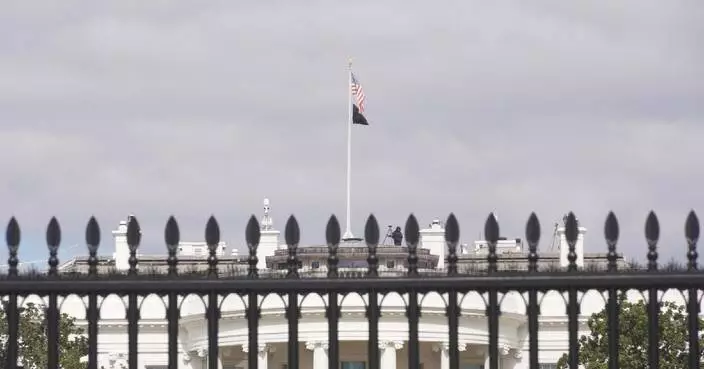Feature · News

A timeline of how the protests in Iran unfolded and grew
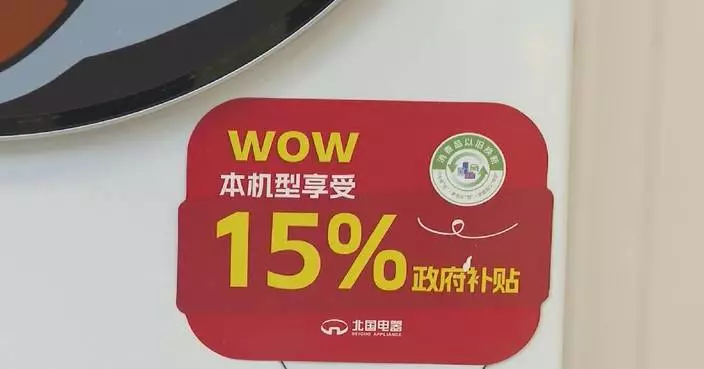
China's new trade-in program sparks consumption boom

Russia reports strikes on Ukrainian energy, transportation facilities; Ukraine claims repelling Russian attacks

US "imperialist" intentions over Greenland shows "great disrespect" for NATO allies: German scholar

Chinese commerce chambers welcome latest development in China-EU EV talks

US, Iran must rebuild trust before diplomacy can succeed: expert
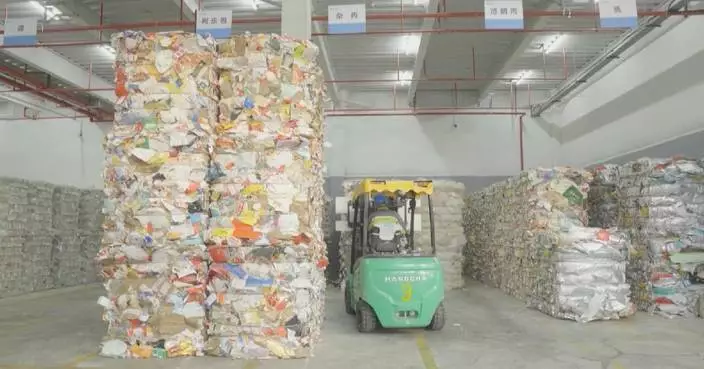
China aims for full zero-waste city coverage by 2035

Chinese FM says it's opportune time for China, AU to enhance strategic mutual trust, cooperation

China opens 2026 space mission schedule with successful satellite launch
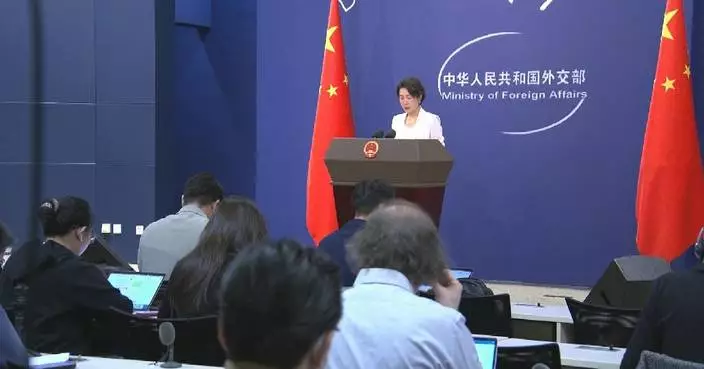
No report of Chinese casualties in Iran so far: spokeswoman

Wisconsin Gov. Evers questions his lieutenant governor's immigration enforcement proposal

JPMorgan Chase profits rise 9% in the fourth quarter excluding hit from the Apple Card acquisition

China's box office revenue for commercial performances hits 61.66 bln yuan in 2025

Inflation cooled slightly in December though it remains above Fed's target
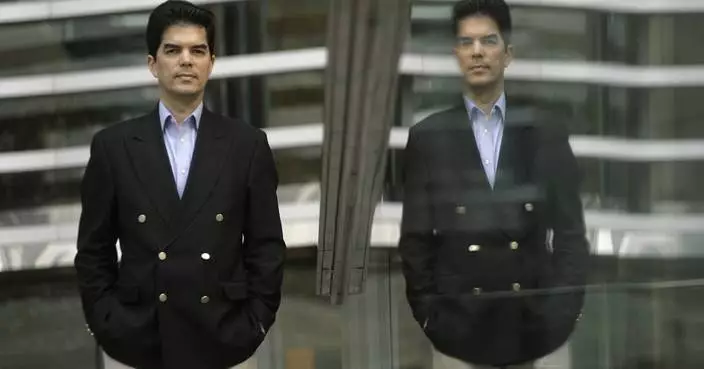
David Webb, prominent Hong Kong shareholder activist, dies at 60

Microsoft's Brad Smith pushes Big Tech to 'pay our way' for AI data centers amid rising opposition
China aims for full zero-waste city coverage by 2035
Chinese FM says it's opportune time for China, AU to enhance strategic mutual trust, cooperation
China opens 2026 space mission schedule with successful satellite launch

No report of Chinese casualties in Iran so far: spokeswoman

A timeline of how the protests in Iran unfolded and grew
China's new trade-in program sparks consumption boom
Russia reports strikes on Ukrainian energy, transportation facilities; Ukraine claims repelling Russian attacks
US "imperialist" intentions over Greenland shows "great disrespect" for NATO allies: German scholar
Chinese commerce chambers welcome latest development in China-EU EV talks
US, Iran must rebuild trust before diplomacy can succeed: expert

Wisconsin Gov. Evers questions his lieutenant governor's immigration enforcement proposal

JPMorgan Chase profits rise 9% in the fourth quarter excluding hit from the Apple Card acquisition
China's box office revenue for commercial performances hits 61.66 bln yuan in 2025

Inflation cooled slightly in December though it remains above Fed's target

David Webb, prominent Hong Kong shareholder activist, dies at 60

Microsoft's Brad Smith pushes Big Tech to 'pay our way' for AI data centers amid rising opposition
Feature·Bloggers

【Ariel】Jimmy Lai’s “Solitary” Twist: Judges Say He Asked For It

【What Say You?】Accomplice Witness Chen Zihao: Family Stalked, Fears Black Bloc Revenge After Release

【Deep Blue】International Laws? You Kidding Me?

【Bastille Commentary】Chicken-hearted Conservatives: Sanctioning Hong Kong Judges While Trump Runs Wild

【What Say You?】Trump’s “Maduro Grab” Gets a Glossy Spin by the Usual Suspects

【What Say You?】Trump's Judicial Theater: Maduro's Fate Already Sealed

Activists say Iran has aired at least 97 coerced confessions from protesters, often after torture
- Trump calls on Tehran to show protesters humanity amid reports of rising death toll in crackdown
- Attorneys give dueling narratives to open 'au pair affair' double murder trial in Virginia
- Multiple Americans detained in Venezuela have been released, Trump administration says
- The Latest: Trump lashes out at Federal Reserve in speech to Detroit Economic Club
- Demonstrator injured after federal agent fired projectile from close range during California protest
- Wildlife crews stop actively searching for young wolves after livestock attacks
- Hundreds more in Venezuela say their loved ones are political prisoners
- The Latest: Iran eases some communications restrictions as activists say death toll surpasses 2,500
- Actor Kiefer Sutherland arrested for allegedly assaulting a ride-hail driver, police say

World’s first 20-MW offshore wind turbine installed in waters near Fujian
- China's Long March-8A rocket launches new satellite group
- Chang'e-6 lunar sample unveils key clues to moon's geological evolution
- China flu activity declines for fourth week, no new pathogens detected: official
- Internet blackout adds to Iran tensions: CGTN correspondent
- Xi's special envoy visits Laos
- UBS forecasts 8 pct growth in China's equity market for 2026
- Iranians in China hope for quick resolution to unrest, urge against foreign interference
- Heavy snowfall blankets Serbia, disrupting power supply, transportation
- Economy remains primary issue as presidential election draws close in Uganda

COSRX Kicks Off 2026 with "NEW YEAR, NEW BRIGHT" Alpha-Arbutin Moving Car Pop-Up in Kuala Lumpur
- DeskIn Redefines Remote Creation: Powering Borderless Design & Creative Production in the AI Era
- Kat Florence Hotel Unveils Daily La Mer Massages Included, Michelin-Origin 'Infinity Pâtisserie,' and a Nordic Winter Spa
- Pharm-D Health Science’s ELDON formalises brand ambassador partnership with Malaysian media personalities Chan Fong and Henley Hii as Brand earns Malaysia Book of Records recognition
- Teoxane to Launch First APAC Regional Academy in Bangkok
- Rockwell Automation 2025 Sustainability Report Reflects Continued Commitment to Build a More Resilient, Agile, and Sustainable Future
- DNV SUPPORTS NOUL IN IVDR CERTIFICATION FOR AI-BASED MEDICAL DIAGNOSTIC PRODUCTS
- Trump visits Ford plant and defends his tariffs, hoping to counter jitters about the economy
- NLCS (Singapore) Brings World-Class Musical Opportunities to Young Artists Across Asia
- Wall Street executives warn Trump: Stop attacking the Fed and credit card industry

The death toll from a crackdown on protests in Iran jumps to at least 2,571, activists say
- Hospital and nurses fail to negotiate during second day of NYC's largest nursing strike in decades
- Louisiana seeks California doctor’s extradition, testing the limits of shield laws
- Malaysia will take legal action against Musk's X and xAI over misuse of Grok chatbot
- Pentagon is embracing Musk's Grok AI chatbot as it draws global outcry
- Apple calls on Google to help smarten up Siri and bring other AI features to the iPhone
- Meta names former Trump adviser Dina Powell McCormick as president and vice chairman
- Malaysia and Indonesia become the first countries to block Musk’s Grok over sexualized AI images
- Google teams up with Walmart and other retailers to enable shopping within Gemini AI chatbot
- VR headsets are 'hope machines' inside California prisons, offering escape and practical experience

National Board of Review to fete 'One Battle After Another'
- 'West Wing' actor Timothy Busfield turns himself in to face child sex abuse charges in New Mexico
- ‘Dances with Wolves’ actor Nathan Chasing Horse's child sex abuse trial begins
- Detroit Auto Show opens as industry pares back splashy debuts and leans on test tracks
- Snoop Dogg's NBA analyst role underscores why his on-air presence and global appeal keeps growing
- SiriusXM rehires Chris Cuomo to host morning talk show
- Scott Adams, whose comic strip 'Dilbert' ridiculed white-collar office life, dies at 68
- The BBC seeks to dismiss Trump's $10B defamation lawsuit in a Florida court
- Hong Kong court moves closer to sentencing activist Jimmy Lai after hearing lighter penalty pleas
- Adelaide Writers Week canceled as 180 speakers withdraw after the exclusion of a Palestinian writer

49ers open practice window for Fred Warner, eyeing his return for NFC title game
- Olympic legends reunite in Los Angeles to kick off ticket registration for 2028 Games
- Bears' wild-card win over Packers sets NFL streaming viewership record with 31.61 million average
- Yankees acquire left-hander Ryan Weathers from Marlins for 4 prospects
- Diamondbacks acquire 8-time All-Star 3B Nolan Arenado in a deal with the Cardinals
- David Stearns says he's not blind to frustration of Mets fans but is certain overhaul is best
- Project B women's basketball league to play in Tokyo in April 2027
- Chargers fire offensive coordinator Greg Roman and offensive line coach Mike Devlin
- Mario Cristobal's path back to Miami was forged by family. He has Miami on the cusp of a CFP title
- Ravens owner Steve Bisciotti opens up on firing Harbaugh and the search for the next coach
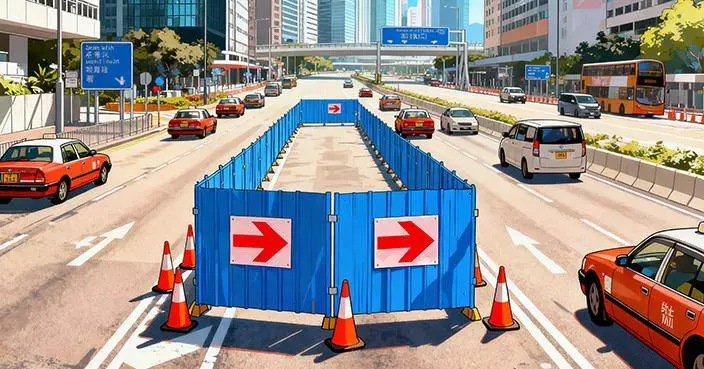
Special Traffic Arrangements in Happy Valley for Race Day Today
- Court Dismisses Chow Hang Tung's Challenge to Hong Kong's Clothing Policy for Persons in Custody
- AFCD Cracks Down on Fraudulent Sales at FarmFest 2026, Considers Permanent Ban for Violators.
- Hong Kong and Mainland China Strengthen Healthcare Collaboration with New Agreements on Chinese Medicine and Cancer Prevention.
- Severe pediatric influenza case prompts urgent vaccination reminder from health authorities.
- New 468 Employment Rule Enhances Part-Timer Rights, Effective January 18, Says Labour Secretary Chris Sun.
- SWD Celebrates Outstanding Carers at Hong Kong's Care the Carers Campaign Ceremony
- Hospital Authority Launches Phase II of Community Health Training Project with National Health Commission and Chow Tai Fook Foundation.
- Fire Services Inspect Buildings for Safety Violations, Issuing 32 Notices and One Prosecution Amid Public Concern.
- Go! Illustrators Finale Celebrates Emerging Hong Kong Picture Book Talent at International Book Fair
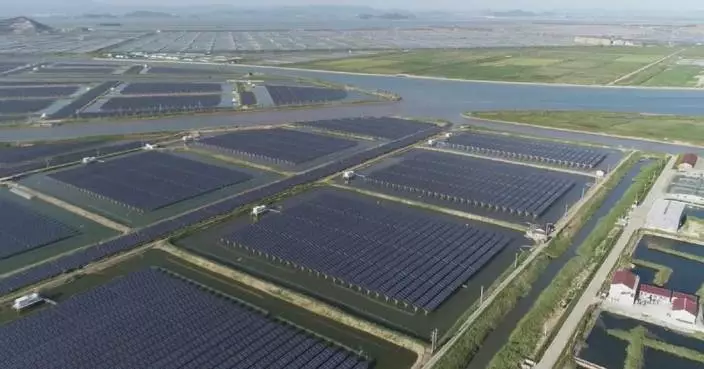
China extends anti-dumping tariffs on solar-grade polysilicon imports from US, ROK
- World’s largest-diameter boring machine put into use for Yangtze River railway tunnel
- Nigeria petrol price cuts ease living costs, raise durability concerns
- Chicago expands housing supply to ease affordability pressure
- Turpan City in Xinjiang hit by continuous heavy fog
- Traditional treatments, advanced equipment on China's navy hospital ship wow Brazilian visitors
- China to increase support for elderly care service providers
- Cold wave triggers temperature dips, snowfall in northwest China's Xinjiang
- AI tennis robot serves as perfect practice partner for players in Shenzhen
- Chinese shares close lower Tuesday with record single-day A-share trading turnover
Category · News

49ers open practice window for Fred Warner, eyeing his return for NFC title game

Activists say Iran has aired at least 97 coerced confessions from protesters, often after torture

Trump calls on Tehran to show protesters humanity amid reports of rising death toll in crackdown

Attorneys give dueling narratives to open 'au pair affair' double murder trial in Virginia

Multiple Americans detained in Venezuela have been released, Trump administration says

The Latest: Trump lashes out at Federal Reserve in speech to Detroit Economic Club

World’s first 20-MW offshore wind turbine installed in waters near Fujian

Olympic legends reunite in Los Angeles to kick off ticket registration for 2028 Games

Demonstrator injured after federal agent fired projectile from close range during California protest

Wildlife crews stop actively searching for young wolves after livestock attacks

COSRX Kicks Off 2026 with "NEW YEAR, NEW BRIGHT" Alpha-Arbutin Moving Car Pop-Up in Kuala Lumpur

Bears' wild-card win over Packers sets NFL streaming viewership record with 31.61 million average

DeskIn Redefines Remote Creation: Powering Borderless Design & Creative Production in the AI Era

Hundreds more in Venezuela say their loved ones are political prisoners

The Latest: Iran eases some communications restrictions as activists say death toll surpasses 2,500

Actor Kiefer Sutherland arrested for allegedly assaulting a ride-hail driver, police say

Yankees acquire left-hander Ryan Weathers from Marlins for 4 prospects

The death toll from a crackdown on protests in Iran jumps to at least 2,571, activists say

Zayed Sustainability Prize Honours Global Pioneers Advancing Progress

Diamondbacks acquire 8-time All-Star 3B Nolan Arenado in a deal with the Cardinals

Mississippi synagogue congregant shares story of 1967 Ku Klux Klan bombing

David Stearns says he's not blind to frustration of Mets fans but is certain overhaul is best

Special Traffic Arrangements in Happy Valley for Race Day Today

National Board of Review to fete 'One Battle After Another'

'West Wing' actor Timothy Busfield turns himself in to face child sex abuse charges in New Mexico

Project B women's basketball league to play in Tokyo in April 2027

Gaza's living conditions worsen as strong winds and hypothermia kill 5

Kat Florence Hotel Unveils Daily La Mer Massages Included, Michelin-Origin 'Infinity Pâtisserie,' and a Nordic Winter Spa

Chargers fire offensive coordinator Greg Roman and offensive line coach Mike Devlin

Pharm-D Health Science’s ELDON formalises brand ambassador partnership with Malaysian media personalities Chan Fong and Henley Hii as Brand earns Malaysia Book of Records recognition

Mario Cristobal's path back to Miami was forged by family. He has Miami on the cusp of a CFP title

Teoxane to Launch First APAC Regional Academy in Bangkok

In New York, Hochul moves to thread needle between Democratic divides ahead of election

Rockwell Automation 2025 Sustainability Report Reflects Continued Commitment to Build a More Resilient, Agile, and Sustainable Future

Ravens owner Steve Bisciotti opens up on firing Harbaugh and the search for the next coach

DNV SUPPORTS NOUL IN IVDR CERTIFICATION FOR AI-BASED MEDICAL DIAGNOSTIC PRODUCTS
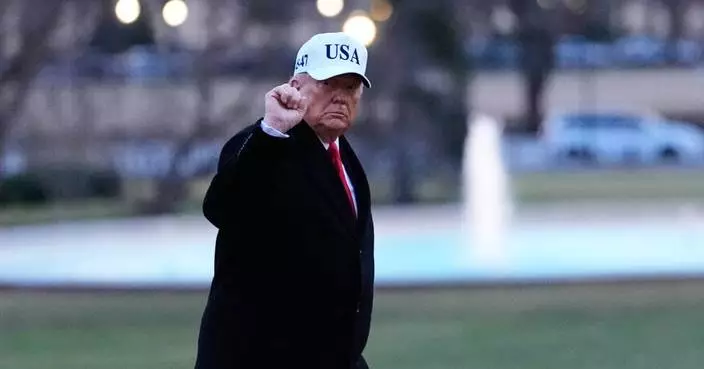
House passes bill codifying Trump order to rinse away showerhead regulations
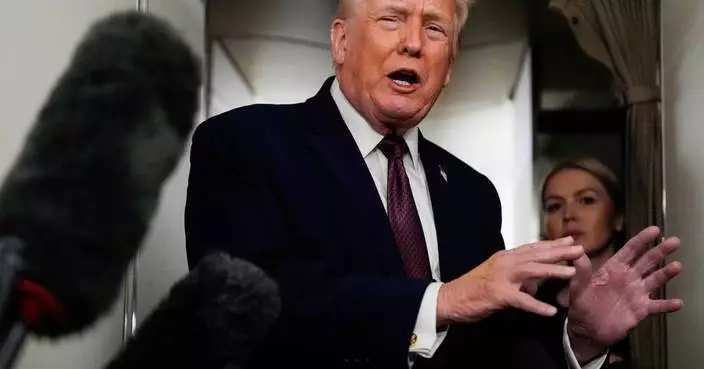
Trump visits Ford plant and defends his tariffs, hoping to counter jitters about the economy

Minnesota protesters, agents repeatedly square off while prosecutors quit after Renee Good's death

Linebacker Dre Greenlaw returns from pulled hamstring as Broncos prepare for home playoff game

Minneapolis duo details their ICE detention, including pressure to rat on protest organizers

Claudette Colvin, who refused to move seats on a bus at start of civil rights movement, dies at 86

LGBTQI+ Leaders Gather in Los Angeles to Support the Rights of All Americans to Live Their Lives Freely and Fairly

NYC Council employee’s arrest sparks protests and a dispute over his immigration status

Justice Department sees no basis for civil rights probe in Minnesota ICE shooting, official says

Latvia to make injury replacement for the Olympics with Eriks Mateiko out

Chloe Kim says she's 'good to go' for Olympics despite labrum tear in shoulder

Semenyo scores again as Man City beats Newcastle 2-0 in English League Cup semifinal

Manchester United hires former player Michael Carrick as head coach until end of the season

NLCS (Singapore) Brings World-Class Musical Opportunities to Young Artists Across Asia

Rio de Janeiro zoo animals are treated to popsicles as the city faces scorching summer weather
China's Long March-8A rocket launches new satellite group

Georgia lawmakers move to strike Savannah ban on guns in unlocked cars

Democrats will spend millions to shift voter registration strategy ahead of the midterm elections

Veracity Launches Metabolic Power Protein: A Smarter Protein Designed to Strengthen Your Metabolism Without Toxicity

Wall Street executives warn Trump: Stop attacking the Fed and credit card industry

Denmark, Greenland leaders stand united against Trump's Greenland takeover call ahead of key meeting

Hospital and nurses fail to negotiate during second day of NYC's largest nursing strike in decades

‘Dances with Wolves’ actor Nathan Chasing Horse's child sex abuse trial begins
Chang'e-6 lunar sample unveils key clues to moon's geological evolution

Louisiana seeks California doctor’s extradition, testing the limits of shield laws

Leverkusen's Bundesliga game at Hamburg postponed over stadium roof concerns

Neurosoft Bioelectronics Wins 2026 Startup World Cup Las Vegas Regional Competition

Aptar’s Nasal Vaccine Delivery Solutions Featured in CastleVax Phase II Clinical Trial of an Intranasal COVID-19 Vaccine Candidate

GIGABYTE Redefines Human-AI Interaction at CES 2026 with a Fully Immersive, Participatory Experience

Detroit Auto Show opens as industry pares back splashy debuts and leans on test tracks

Nartey's breakthrough goal gives Stuttgart a 3-2 win over Frankfurt in thriller

Mikaela Shiffrin and Lindsey Vonn's US teammates are also making an impact in the Olympic season

Trump administration says it is ending deportation protections for some Somali migrants

Mike Tomlin steps down after 19 seasons as coach of the Pittsburgh Steelers

Trump administration labels 3 Muslim Brotherhood branches as terrorist organizations

Eagles move on from OC Kevin Patullo after one lackluster season with him calling plays

Wall Street pulls back from its records as JPMorgan Chase and Delta kick off earnings season

Plane used in boat strike off Venezuela was painted to look like a civilian aircraft, AP sources say

Armed Forces Benefit Association (AFBA) Appoints Larry O. Spencer Chair of the Board

Smithsonian faces a deadline to show Trump its plans for exhibits for America's 250th birthday

Costa Rica's security director says plot to assassinate president uncovered

Photos of demonstrators outside the Supreme Court as it considers upholding transgender sports bans

Supreme Court seems likely to uphold state bans on transgender athletes in girls and women's sports

Aubameyang, Manga reinstated after Gabon's post-Africa Cup expulsions, search for coach continues

What to know about the warrants most immigration agents use to make arrests

A suspect in the vandalism of JD Vance’s Ohio home must stay in jail until trial

AFL Introduces Fujikura 100S Fusion Splicer with Dual-Fiber Technology and CT60 Cleaver

New Incisiv Study with Toshiba and Intel Explores How Adaptive Store Operations Balance Experience and Efficiency in Specialty Retail













